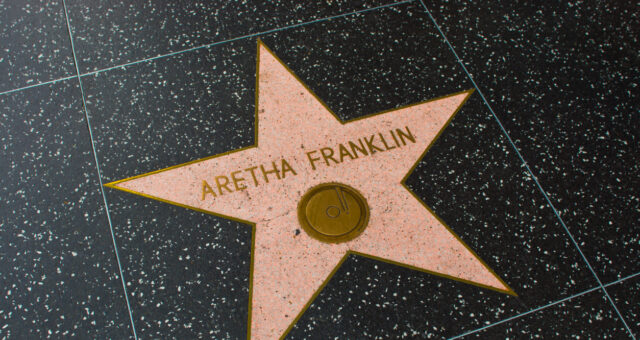Respecting the Intentions of The Deceased


Generally, families want to respect the intentions of the deceased, though doing so can be easier said than done, as probate of Aretha Franklin’s estate illustrates. It has been over four years since her death, and resolution is just beginning to emerge. Among the issues her sons have had to tackle is coming to agreement, with the help of a probate court, on which of two handwritten wills expressed Aretha’s final intentions.
Holographic Wills
Some states do not even allow handwritten (aka holographic) wills, but others, including Michigan, do, though, as Investopedia points out: “States that do permit holographic wills require the document meet specific requirements to be valid.” For example, minimum requirements for accepting a holographic will include proof that it was in fact made by the testator (deceased person)—and that the testator had the mental capacity to make the decisions reflected in the will. Signature by the testator is also critically important. Experts note: “Holographic wills do not need to be witnessed or notarized, which can lead to some issues during will validation in probate court. To avoid fraud, most states require that a holographic will contain the maker’s signature. However, the courts will have to determine whether the will was signed in the testator’s signature and by the testator’s hand.”
Interestingly, in the case of Aretha’s two wills, as The New York Times explains, “There was no dispute that Franklin had written the documents, though there has been a debate as to whether the 2014 will was properly signed — a smiley face appears to take the place of her first initial.” The primary issue given to a jury in probate court in Pontiac, Michigan, was determining which of the two handwritten wills should be deemed valid. Reporters Ben Sisario and Ryan Patrick Hooper offer this summary of the case and result:
After the singer died, at age 76, her family believed she had no will. Under Michigan law, her assets would have been divided equally among her four sons: Kecalf, Edward and Clarence Franklin, and Ted White Jr….But months later…the two handwritten documents were found at Franklin’s home in suburban Detroit — one in a locked cabinet, the other in a spiral notebook in the couch — which immediately divided the singer’s children. It also raised questions about how music royalties and other income from the estate — as well as cherished items like Franklin’s furs, jewelry and musical instruments — would be distributed.…After a two-day trial in a probate court in Pontiac, Mich., a six-person jury decided after less than an hour of deliberation that a four-page document written by Franklin in 2014 — and discovered under a couch cushion at her home, months after Franklin’s 2018 death — should serve as her will.
Dividing The Assets
Had Aretha’s handwritten wills not turned up, the state laws of intestacy would have been applied, resulting in the equal distribution of assets to her four sons. Of course, distribution could not occur until the $8 million federal income tax bill was straightened out. Among the differences in the wills from 2010 and 2014 was the division of assets. Specifically, according to the The New York Times:
The earlier one specified weekly and monthly allowances to each of Franklin’s four sons. It also stipulated that Kecalf and Edward “must take business classes and get a certificate or a degree” to collect from the estate. In the later will, three of Franklin’s sons — all except Clarence — would receive equal shares of their mother’s music royalties, but Kecalf and his children would receive more of Franklin’s personal property. According to the document, Kecalf would receive his mother’s primary home in Bloomfield Hills, Mich. — valued at $1.1 million at the time of her death — as well as the singer’s cars. According to an accounting submitted to court in March, Franklin owned a Mercedes-Benz, two Cadillacs and a Thunderbird convertible….According to Craig A. Smith, a lawyer for Edward Franklin, the sons have agreed to all support Clarence, the singer’s first child, who according to court papers has a mental illness.
Helpful To Know
Probate litigation cases are unfortunate, and it’s important not to confuse them with probate itself. Flick Law Group explains that probate can be simply defined as “the court-supervised process for distributing a deceased person’s money and property….” Estate planners remind us that the probate process can in fact come in handy, especially if conflict or debt are possibilities. When families are communicating and have had a chance to get organized, probate generally proceeds smoothly.
Most states now offer expedited processes depending upon the level of assets involved.
During probate, courts frequently require procurement of a type of fiduciary bond known as a probate bond . A probate bond, sometimes also referred to as an estate or personal representative bond, essentially protects the interests of the estate and its beneficiaries in accordance with state law. As a leading national and direct provider of all kinds of fiduciary bonds, Colonial Surety makes it quick and easy to obtain probate bonds—and all types of fiduciary bonds. The steps to obtaining a probate bond with Colonial are easy: get a quote online, fill out the information, and enter a payment method. Print or e-file the bond from anywhere—even while at court. It’s that simple.
Probate Law?
Colonial Surety provides attorneys with complimentary business support services via The Partnership Account®. Once you sign up, you will have direct access to our complete online portfolio of court and fiduciary bonds–and your own private dashboard. Use it to quickly and efficiently obtain, track, manage and even e-file all the bonds needed to keep your clients and cases moving forward.
Colonial’s online bond portfolio includes: administrator, estate, executor, guardian, personal representative, probate, trustee and conservator. We also have: appeal, supersedeas, injunction, replevin and receiver bonds—and more.
Yes please: The Partnership Account® for Attorneys.
Founded in 1930, Colonial Surety Company is a direct writer of surety bonds and insurance products. Colonial is rated “A Excellent” by A.M. Best Company, U.S. Treasury listed, and licensed for business everywhere in the USA.

